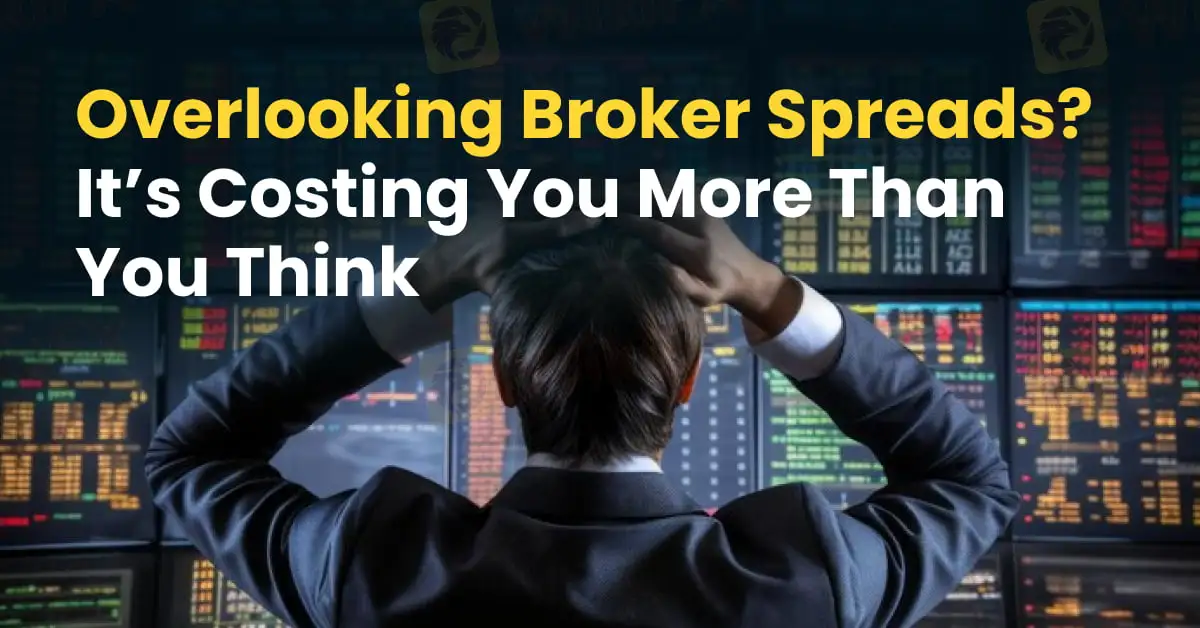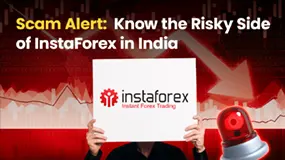Overlooking Broker Spreads? It’s Costing You More Than You Think
Abstract:In the ever-competitive world of online trading, where margins are slim and timing is everything, traders often obsess over entry strategies, risk management, and technical setups. Yet one critical element is routinely underestimated, if not outright ignored, especially by retail and novice traders alike, is the broker’s spread.

In the ever-competitive world of online trading, where margins are slim and timing is everything, traders often obsess over entry strategies, risk management, and technical setups. Yet one critical element is routinely underestimated, if not outright ignored, especially by retail and novice traders alike, is the brokers spread.
At its core, the spread is the difference between the bid and ask price quoted by a broker. It is, quite simply, the cost of doing business in the markets. For market makers and ECN brokers alike, the spread represents either a primary or supplemental income stream. And for traders, particularly those operating with high frequency or tight profit targets, it represents a potentially significant erosion of earnings.
While a few pips may seem negligible on a single trade, the reality is far from trivial. Consider a scenario where a trader executes 100 trades per month on a major forex pair with an average spread of 1.5 pips, compared to another broker offering 0.5 pips. The difference of 1 pip per trade, when multiplied across all positions, could cost the trader hundreds, even thousands, in cumulative trading costs annually. Over time, such leakage can significantly impact overall profitability, particularly for scalpers, day traders, and algorithmic strategies that rely on high-frequency execution.

Moreover, spreads can vary not only from broker to broker, but also across account types within the same platform. Standard accounts often bundle the cost into wider spreads, while ECN or raw spread accounts may offer tighter pricing but charge a commission. While both pricing models can be legitimate, traders must weigh the total cost per trade, not just the headline spread or commission, to accurately compare accounts.
The importance of a tight, stable spread becomes even more apparent during high-volatility events, such as major economic releases or geopolitical developments. Brokers with subpar liquidity arrangements may widen their spreads dramatically during such periods, triggering stop-outs or undermining strategy effectiveness. As such, consistent spread behaviour under stress conditions is just as critical as the advertised average.
It is also essential to remember that while spreads may appear insignificant in isolation, they compound silently and relentlessly, particularly for traders with narrow profit margins or short-term strategies. In essence, a high spread functions as a form of friction, quietly siphoning off profits that could otherwise have compounded into meaningful gains over time.
In a market where every edge counts, neglecting to evaluate a broker‘s spread offering is not just an oversight, but it is also a strategic error. Savvy traders understand that profitability is not only about making good trades, but also about minimising unnecessary costs. A broker’s spread may not be as attention-grabbing as a trading strategy or signal service, but its long-term impact on performance is arguably just as critical.
Choose your broker wisely. Because in trading, the small things arent so small after all.

Read more

Juno Markets: A Closer Look at Its Licenses
When selecting a broker, understanding its regulatory standing is an important part of assessing overall reliability. For traders seeking to protect their capital, ensuring that a platform operates under recognised and stringent oversight can make all the difference. Keep reading to learn more about Juno Markets and its licenses.

Complaints Against Weltrade | Traders Can’t Get Their Money Back
Opening a trading account and watching your capital grow can feel exciting and full of promise until the moment you realise you cannot get your money back. That’s when the dream turns into a nightmare. Recent complaints submitted to WikiFX reveal an unsettling pattern seen at Weltrade where deposits vanish, withdrawals stall for days or even months, and support channels lead nowhere.

Top 5 Cent Account Brokers for 2025: Best Choices for Beginners and Pros
Discover the top 5 cent account brokers for 2025 and learn how cent account trading works. Explore benefits, broker comparisons, and practical tips for beginners and pros to trade forex with low risk and minimal deposits.

Scam Alert: Know the Risky Side of InstaForex in India
you should always Scam Alert in forex market. If something seems too good to be true, it often hides red flags behind it. Therefore, We reviewed InstaForex and reveal hidden risks associated with it. Whether you are an Indian trader, a potential user, or an existing client, it is crucial to understand the risks associated with InstaForex .
WikiFX Broker
Latest News
What Is Indices in Forex? A Beginner’s Guide to Trading Forex Indices
How to Use Retracement in Trading
CySEC warns the public against 17 investment websites
Robinhood Moves Toward MENA Expansion with Dubai DFSA License Application
FBI Issues Urgent Warning on Crypto Recovery Scams
European leaders to join Zelensky at White House meeting with Trump
Germany's Industrial Core Is Collapsing Under The US Trade Deal And The Green Agenda
Understanding Forex Spread Cost and How to Minimize It
Juno Markets: A Closer Look at Its Licenses
Complaints Against Weltrade | Traders Can’t Get Their Money Back
Rate Calc

